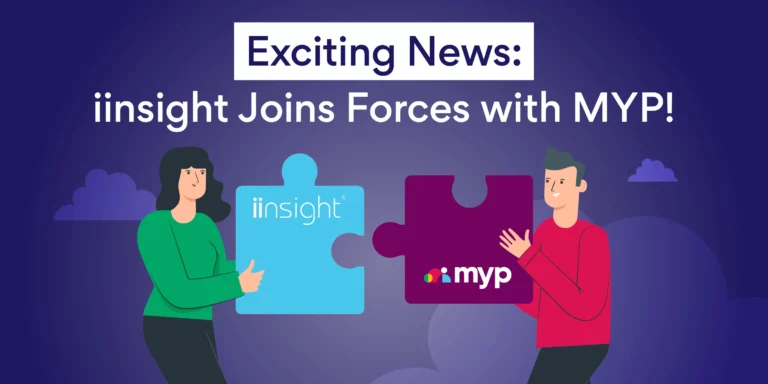Are you ready to make a real difference in lives as a disability support worker? This role isn’t just a job. It’s a commitment to compassion and empowerment.
With every individual you assist, you’re not only providing essential support but also becoming a pillar in their journey towards independence. This demanding yet fulfilling career requires a unique set of skills and knowledge.
Whether you’re stepping into this role for the first time or looking to refine your expertise, these ten golden tips are tailored just for you. From mastering effective communication to embracing the latest in supportive technologies, this guide is your compass for navigating the rewarding yet challenging terrain of disability support.
1. See Through Their Eyes
Empathy is at the heart of disability support work. It’s about seeing the world through another’s eyes and understanding their challenges and experiences.
As a disability support worker, developing this deep level of empathy is crucial. It allows you to connect with individuals on a personal level and foster a supportive environment that’s tailored to their unique needs.
Empathy isn’t just feeling for someone. It’s also about actively listening and responding to their specific needs. For instance, someone with a physical disability might face different challenges than someone with a cognitive impairment.
Understanding these nuances helps in providing more effective support. This understanding is critical in disability employment settings, where diverse needs are the norm.
A great example of empathy in action is when a support worker recognises the importance of independence for a client and adjusts their approach to empower the individual, rather than doing everything for them. This not only respects the client’s autonomy but also boosts their self-esteem.
2. Master Clear Communication
Clear communication is a cornerstone of effective support work. It’s about more than just exchanging words. It’s about ensuring your message is understood and that you’re understanding others correctly.
This is especially important when working with individuals who might have communication barriers.
For a disability support worker, strong communication skills include being able to explain things clearly and simply without patronising. It’s about active listening, where you’re fully engaged and responsive to the person you’re supporting. This skill is essential to building trust and rapport.
Practical communication skills are vital in scenarios like explaining a new routine to a person with learning difficulties or finding ways to communicate non-verbally with someone who is non-verbal. These scenarios call for creativity and patience, alongside strong support worker skills.
3. Set Boundaries
Professional boundaries are key in disability support work. They’re about maintaining a respectful, ethical relationship that prioritises the well-being of the individual you’re supporting. It’s about understanding the line between being supportive and overstepping.
Maintaining these boundaries protects both you and the person you’re supporting. It ensures that the support provided is focused on their needs and is delivered in a professional manner.
For example, it might be natural to feel protective of a client, but it’s important to encourage their independence as much as possible.
In scenarios where emotional attachments can develop, such as long-term support situations, it’s crucial to remain professional. This might mean seeking supervision or guidance when you feel these boundaries might be blurred.
4. Adapt and Overcome
In the world of disability support, flexibility and adaptability are key. Every day can bring new challenges and situations. Being adaptable means you’re ready to handle anything that comes your way.
It’s about being open to change and being able to adjust your approach to meet the needs of each individual you support.
Take, for example, a situation where a regular activity for a client suddenly becomes inaccessible. A flexible disability support worker quickly finds an alternative that suits the client’s needs and preferences. This skill is crucial, as rigid plans often don’t hold up in the ever-changing landscape of disability support.
Being adaptable also means staying informed about the latest disability resources. Knowing what’s available can make a huge difference in the quality of support you provide.
5. Champion Disability Rights
As a disability support worker, a thorough understanding of disability rights and advocacy is not just beneficial, but necessary. It’s about recognising and upholding the rights that protect individuals with disabilities against discrimination and inequality.
These rights cover various aspects, from accessibility in public spaces to equal opportunities in education and employment.
Knowing the laws and regulations, such as the Equality Act 2010 in the UK, is crucial. These laws ensure that people with disabilities receive the same rights and opportunities as everyone else.
For example, ensuring a workplace is accessible and provides reasonable accommodations for employees with disabilities is not just a legal requirement. It’s a fundamental right.
Beyond legal knowledge, being an advocate means actively promoting inclusion and accessibility in every aspect of society. This could involve working with local governments to improve public transportation for individuals with disabilities or collaborating with educational institutions to create more inclusive learning environments.
Staying informed about the latest developments in disability rights and resources is also key. This could mean:
- Attending workshops
- Joining advocacy groups
- Subscribing to relevant publications
6. Never Stop Learning
The field of disability support is always evolving. New research, techniques, and insights are constantly emerging. That’s why continual learning and development are crucial.
Staying current with industry trends and best practices ensures that the support you provide is effective and relevant.
For instance, attending workshops on the latest in inclusive education can equip you with new strategies to support clients with learning disabilities. Reading up on new research about autism spectrum disorders can provide fresh insights into better communication techniques.
Being committed to learning and development also means seeking out and utilising the latest inclusion resources. These resources can provide invaluable support and guidance and help you offer the highest standard of care.
7. Take Care of You
This job can be emotionally taxing, and taking care of yourself is key to providing the best support. It’s about finding balance and ensuring you’re not overwhelmed. Simple techniques like deep breathing, regular exercise, and setting aside time for hobbies can make a big difference.
For example, a support worker dealing with challenging behaviours might feel stressed. Practising mindfulness or seeking support from colleagues can help manage this stress.
Remember, taking care of your mental health is not a luxury. It’s essential. This not only benefits you but also improves the quality of care you provide.
8. Team Up for Success
Teamwork and collaboration are the backbones of effective disability support. Working with others, sharing insights, and learning from colleagues can greatly enhance the support provided. It’s about combining different skills and perspectives to provide comprehensive care.
Consider a situation where a client needs a range of services like physical therapy, counselling, and daily living assistance. Here, teamwork ensures that all aspects of the client’s needs are addressed.
Collaboration among various professionals ensures the client receives holistic support.
Effective communication is key to teamwork. Regular team meetings, sharing updates, and open communication channels ensure everyone is on the same page.
9. Think Outside the Box
Each individual you support has unique needs and challenges, and sometimes, textbook solutions don’t cut it. This is where creativity and innovation come into play. It’s about thinking outside the box and coming up with solutions tailored to individual needs.
For instance, you might encounter a client who struggles with traditional communication methods. Here, you might explore alternative communication tools, like picture cards or assistive technology devices. It’s about being resourceful and trying different strategies until you find what works best for the individual.
In another scenario, you may need to adapt a physical space to make it more accessible. This might involve rearranging furniture or finding specific equipment.
10. Harness Digital Power
In the modern world of disability support, being tech-savvy is more than just a bonus. It’s essential.
Technology plays a crucial role in enhancing service delivery and efficiency. Understanding and using technology can significantly improve the quality of care provided to individuals with disabilities.
For instance, digital tools for scheduling and record-keeping can streamline the administrative side of your work. This means less time spent on paperwork and more time for direct client interaction.
Utilising software for communication can also bridge gaps. Especially when working with clients who have speech or hearing impairments.
Moreover, there are various assistive technologies designed specifically for individuals with disabilities. Familiarising yourself with these technologies can greatly enhance your ability to support clients.
Whether it’s customised input devices for those with limited mobility or screen readers for visually impaired clients, knowing how to leverage these technologies can make a significant difference.
Empowering Your Disability Support Worker Journey
In this comprehensive guide, we’ve explored essential strategies for becoming an effective disability support worker. From honing vital support worker skills to leveraging the best disability resources, each tip is a step towards excellence in social services.
At iinsight®, we’re committed to enhancing your professional journey with our intuitive case management software. Designed to streamline your workflow and boost efficiency, our platform is a perfect ally in your mission of support and inclusion.
Ready to transform your career in disability employment? Book a demo with us today and experience the iinsight® advantage firsthand.











